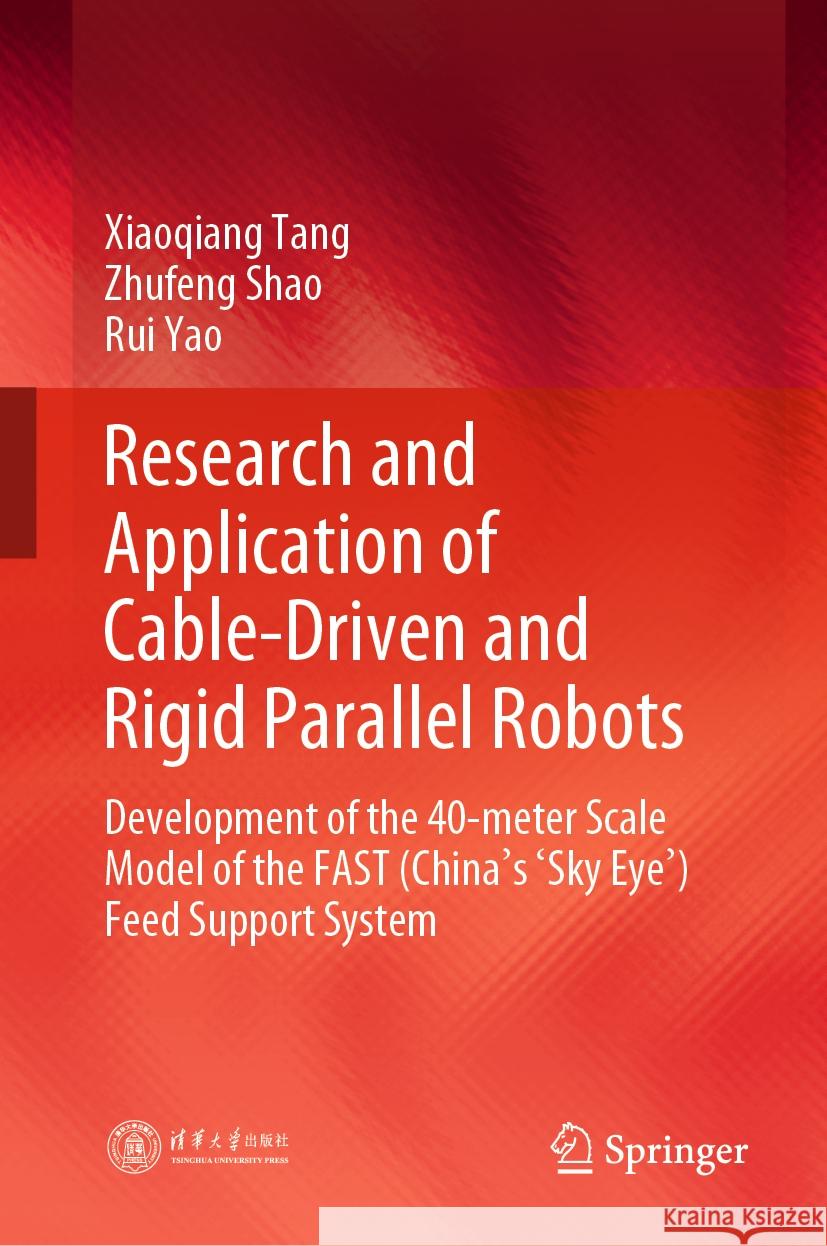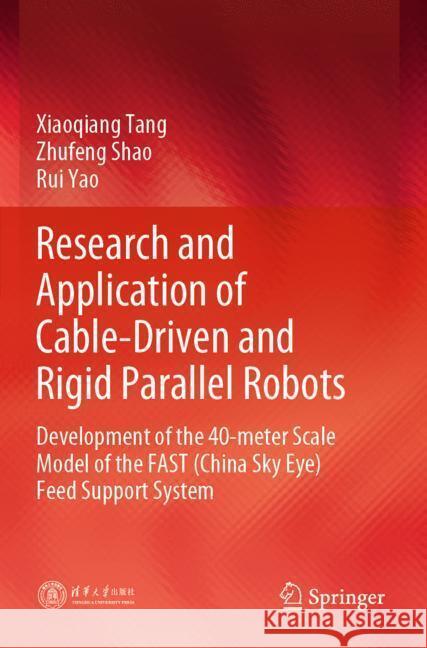Wyniki wyszukiwania:
wyszukanych pozycji: 2
 |
Research and Application of Cable-Driven and Rigid Parallel Robots: Development of the 40-Meter Scale Model of the Fast (China's 'Sky Eye') Feed Suppo
ISBN: 9789819974511 / Angielski Termin realizacji zamówienia: ok. 16-18 dni roboczych. |
cena:
563,56 |
 |
Research and Application of Cable-Driven and Rigid Parallel Robots
ISBN: 9789819974542 / Angielski / Miękka / 2025 / 242 str. Termin realizacji zamówienia: ok. 16-18 dni roboczych. This book is the first academic monograph on the Five-Hundred-Meter Aperture Spherical Radio Telescope (FAST, or China's 'sky eye'), which discusses the research on cable-driven and rigid parallel robots in detail. Taking the final scale model of the FAST feed support system as the object, it introduces the theoretical and engineering research on optimal design, accuracy improvement, and control of the cable-driven and rigid parallel robots, striving to clearly illustrate the core technology of the FAST feed support system, as well as the theoretical methodology and engineering technology... This book is the first academic monograph on the Five-Hundred-Meter Aperture Spherical Radio Telescope (FAST, or China's 'sky eye'), which discusse... |
cena:
563,56 |










